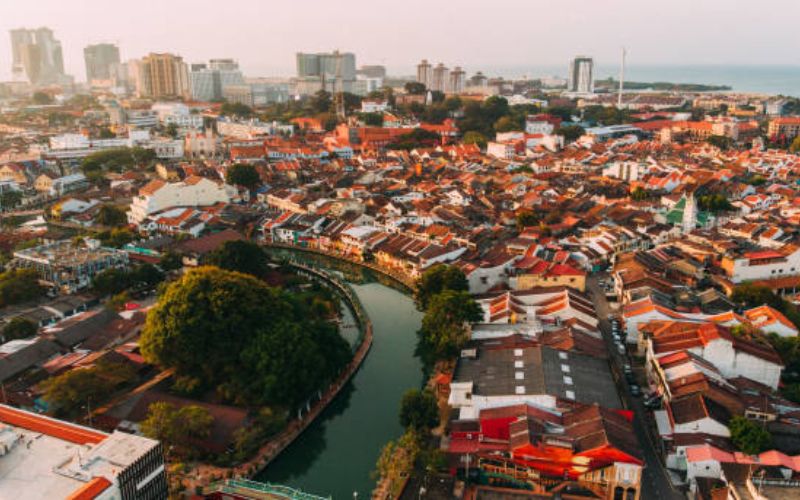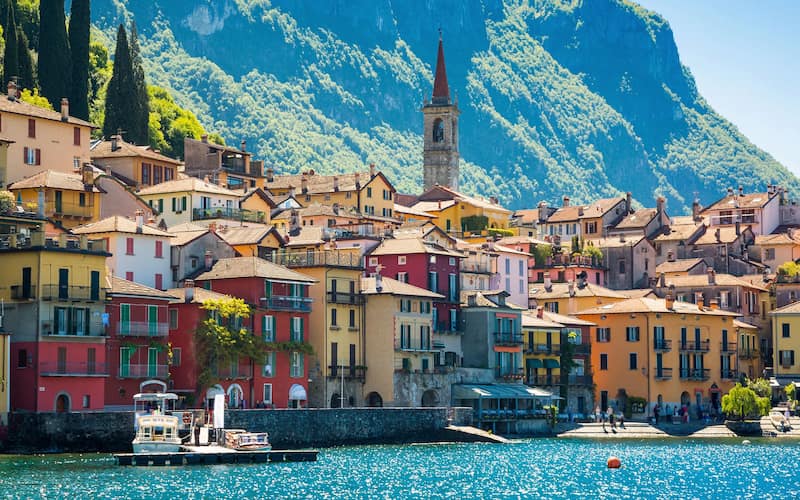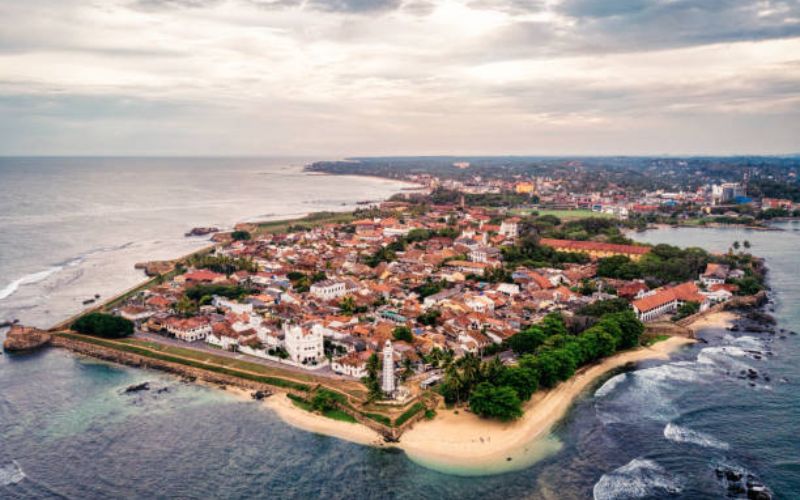Explore the most famous mosques, temples, and historical places in Malaysia as you go on an amazing journey that reveals the rich weave of country’s past. Trip offers an in-depth exploration of Malaysia’s many spiritual and historical landscapes, from complex beauty of Batu Caves and the peaceful elegance of Masjid Jamek to the intriguing historical passageways of George Town and Malacca. Take in the vivid customs and architectural wonders that exemplify the nation’s multiculturalism and provide you a deep understanding of its spiritual and historical heritage.
Whether you’re looking for peaceful beaches, vibrant cityscapes, or lush rainforests, Malaysia tour packages from uae provide an exciting assortment of activities suited to fit every traveller’s interest when organising your ideal holiday. With Malaysia holiday packages, you may discover rich history and culture of the nation, which includes imposing temples, storied mosques, lively marketplaces, and unspoiled natural areas. These packages frequently consist of lodging, guided tours, and carefully chosen activities that guarantee smooth and enriching trip to some of Malaysia’s most attractive locations. Accept the ease and thrill of professionally crafted vacation packages and lose yourself in the singular wonders that Malaysia has to offer.

Here are A Cultural Tour of Malaysia: Must-Visit Temples, Mosques, and Historical Sites:
Temples
Batu Caves (Kuala Lumpur):

Located not far from Kuala Lumpur are the limestone caves and cave temples known as Batu Caves. Dedicated to Lord Murugan, it is one of the most well-known Hindu shrines outside of India. One of the tallest statues of a Hindu deity in the world, at 140 feet tall, is located at this location and is dedicated to Lord Murugan. Climbers can reach the Temple Cave, which has a beautiful perspective of the city and various Hindu sites, by ascending its 272 stairs. Held every year, the Thaipusam festival attracts thousands of tourists and religious alike.
Thean Hou Temple (Kuala Lumpur):
The famous six-tiered Thean Hou Temple in China is devoted to the Heavenly Mother, Thean Hou, who is said to guard fisherman. Situated atop a hill, the temple offers an expansive view of Kuala Lumpur. Its architecture, which combines traditional and modern elements, is characterised by elaborate paintings, statues of deities, and elaborate carvings. The temple complex serves as a centre for social and cultural events and has a tortoise pond, a Chinese medicinal herb garden, and a marriage registration office.
Kek Lok Si Temple (Penang):
The greatest Buddhist temple in Malaysia is Kek Lok Si Temple, also referred to as the Temple of Supreme Bliss. This expansive complex, which is situated in Air Itam, Penang, is made up of carefully designed gardens, prayer rooms, and temples. The seven-story Pagoda of Ten Thousand Buddhas, which combines Thai, Burmese, and Chinese architectural styles, is the temple’s most identifiable feature. The majestic 99-foot statue of Kuan Yin, the Goddess of Mercy, is another focal point. Thousands of lights flood the entire temple during Kek Lok Si’s amazing yearly Chinese New Year celebrations.
Mosques
Masjid Negara (National Mosque, Kuala Lumpur):

Malaysia’s national mosque, Masjid Negara, represents the nation’s Islamic past. Completed in 1965, the mosque’s modernist architecture includes a 240-foot minaret and a unique 18-point star-shaped dome. Up to 15,000 worshippers can fit in the main prayer hall, which is flanked by lovely fountains and reflecting pools. The 13 acres of gardens around the mosque create a calm environment for prayer and introspection. Outside of prayer times, non-Muslim visitors are welcome to view the mosque; robes are available for those who require them.
Masjid Putra (Putrajaya):
One of Malaysia’s most gorgeous mosques is Masjid Putra, also referred to as the Pink Mosque. The mosque, which is housed in the Putrajaya planned city, has a pink dome made of rose-colored granite. It has one of the tallest minarets in the area, standing at 380 feet, and can hold up to 15,000 worshippers at once. The mosque’s interior is decorated with geometric patterns and beautiful Islamic calligraphy, while its exterior combines traditional Malay and Middle Eastern architectural elements. The mosque offers incredible views and peaceful surroundings next to Putrajaya Lake.
Masjid Zahir (Alor Setar):
Constructed in 1912, Masjid Zahir is among the oldest and most luxurious mosques in Malaysia. Situated at the centre of Alor Setar, Kedah, this mosque is well-known for its beautiful design with a Moorish influence. The central black dome of the main prayer hall is crowned by five huge domes that represent the five pillars of Islam. The interior of the mosque is as amazing, with beautifully carved oak doors, stained glass windows, and chandeliers. Masjid Zahir is the centre of the local Muslim community and the venue for a variety of religious activities.
Historical Sites
Malacca (Melaka) Historical City:

A UNESCO World Heritage Site, Malacca is a city rich in colonial beauty and history. Being one of Malaysia’s oldest towns, it was a major commercial port that was influenced by the British, Portuguese, and Dutch. Important historical landmarks include Christ Church, a 1753 Dutch Reformed church; St. Paul’s Hill, which provides sweeping views of the city; and the ruins of the A Famosa fort, a Portuguese bastion from the sixteenth century. The lively Jonker Street, which showcases Malacca’s diverse past, is well-known for its antique stores, night market, and mouthwatering street cuisine.
George Town (Penang):
Another UNESCO World Heritage Site, George Town is the capital city of Penang and is known for its diverse range of cultures and exquisitely preserved colonial architecture. Indian temples, Chinese shop houses, and British colonial architecture coexist in the city’s historic centre. The Khoo Kongsi clan mansion, which displays fine Chinese architecture and craftsmanship, the magnificently restored Cheong Fatt Tze Mansion, commonly known as the Blue Mansion, and the colourful street art that covers the city’s walls are among the notable attractions. The varied food scene of George Town is a reflection of its multicultural background.
Sultan Abdul Samad Building (Kuala Lumpur):
A famous landmark in Kuala Lumpur, the Sultan Abdul Samad Building is situated in front of Merdeka Square. Constructed in 1897, the building currently houses the Ministry of Communications and Multimedia and functioned as the administrative hub for the British colonial administration. Its beautiful Moorish-style design includes copper domes, arched colonnades, and a clock tower. The building is a well-liked location for photos since it looks particularly beautiful at night. The structure is situated in Merdeka Square, which has a rich history as the location of Malaysia’s 1957 independence declaration.
Bujang Valley (Kedah):
The state of Kedah is home to the important archaeological site Bujang Valley, which offers proof of Malaysia’s prehistoric Hindu-Buddhist culture. The location is home to the remnants of historic temples known as candi, which date back to the early centuries AD. Artefacts from the region’s past as a commerce hub, including ceramics, beads, and stone inscriptions, are housed in the Bujang Valley Archaeological Museum. The valley’s beautiful surroundings, including its river and rich vegetation, increase its allure as a travel destination for both history buffs and environmentalists.
Conclusion:
More than just a trip through impressive structures, a cultural tour of Malaysia’s temples, mosques, and historical sites offers an instructive look into the country’s rich cultural and spiritual history. Every location provides a different perspective on Malaysia’s rich history and diverse identity, from the imposing mosques serving as symbols of unification to the amazing temples secluded away in beautiful settings. As you ponder over the exquisite craftsmanship, timeless customs, and interesting past you have seen during your travels, you will come to understand Malaysia’s dual function as a historical landmark and a melting pot of cultures.



